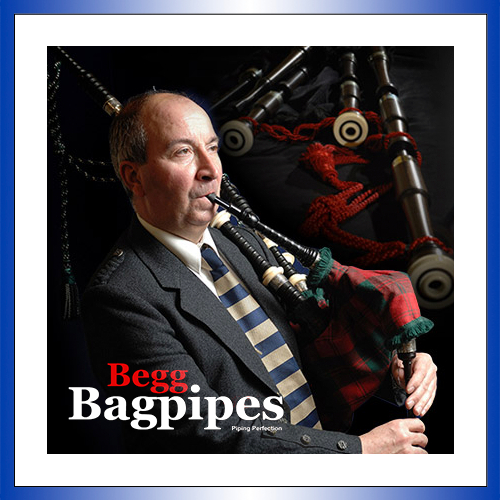In September of 1968 Piping Times published an article on the source of two tunes: Crodh Chailein (Colin’s Cattle) and Within a mile of Edinburgh town. The article is written by James E. Scott, and he begins with saying he has written this in reply to the Rev. Howard G. Welch’s letter in Piping Times for July, which said:
“Dear Sir, may I commend and thank you for including the letter of Mr. Rory Walker of Hounslow, Middlesex, in the December issue of Piping Times. Loch Duich is, I believe, the first tune I played on the pipes and it is still one of my special favourites. I’ve always wondered who wrote that tune and under what circumstances. Now Loch Duich has greater depth of beauty to me. Incidentally, I have tried without success to obtain a book of some sort giving the historical backgrounds of pipe tunes. If you know of such a book I would be obliged for the information. A case in point – Colin’s Cattle – it must be a very, very old tune; and it is also one of my favourites. It would be wonderful to know who wrote that tune and why. Another example – Within a Mile of Edinburgh Toon – to me that tune has genuine character. I have all sorts of ideas as to its background. My guess is that it was written to be played on the pipes as some Highland Regiment returned to Edinburgh from war – proud, happy and eternally brave Scots coming home. Rev. Howard G. Welch, Alabama, U.S.A.“
The text below was written 45 years ago and there may be more information that has been discovered about these tunes in the intervening years. Please get in touch by email if you can add to the story of either tune.

Piping Times Vol.20, No.12
September 1968
by James E. Scott
I offer these notes on above named tunes. Colin’s Cattle exactly translates the Gaelic name Crodh Chailein for this tune. It has Gaelic words associated with it. Among many notices and descriptions, it has been described as a “wonderful strain of pastoral melancholy, redolent of the heathery brae and breezy moorland, breathing a sweet tender spirit of the past and instilling upon the mind a pleasing enchantment”. The tune is said to be native to Lochaber but we think this is more than doubtful, the tune is known throughout the length and breadth of the Scottish Highlands, and is a great favourite with all.
Crodh Chailein is said to be very old, and no composer’s name is known. But Highland tradition steps in and supplies us with one in the shape of a fairy, who crooned this melody as she milked the hinds on the hillside, for Colin’s Cattle were no other than the deer.
It is a well known fact that hinds and other animals give their milk more freely if they are soothed by the milker crooning a sweet melody. Of all the influences to soothe an irritated or sulky cow, and make her give her milk freely, the tune of Crodh Chailein is considered the most powerful among Highland dairymaids, and consequently it is a great favourite with them. And to it crooned by a mother many a fretful child has been lulled to sleep.
Crodh Chailein, mo chridhe,
Crodh Iain, mo ghaoil,
Gun tugadh, crodh Chailein,
Am bainn air an fraoch.
The lyrics above is the first verse of one Gaelic song to the tune. It has been very freely translated into English by Mrs. Grant of Laggan. The tune has the further distinction of having given its name to a distinguished literary club in Edinburgh. This club met regularly in a tavern in the Anchor close, kept by one Daniel Douglas, who knew Gaelic, and whose favourite song was Crodh Chailein, and he was called upon to sing it at the close of every jovial evening. Robert Burns, when in Edinburgh, was a member of this club, and he has commemorated it in verse: As I cam’ bye Crochallen, etc.
There are other verses sung to Crodh Chailein which tell rather a tragic story. A man was suspected of having killed his wife, and the unfortunate woman’s brothers came to charge him with the murder and to avenge her death. As they came to his door late at night, they heard the man whose life they sought crooning this plaintive song to his little motherless child. As they listened to his words of sorrow, they sheathed their dirks, and returned home convinced that he was not the slayer of the woman he mourned in such pathetic verses. This set of verses is almost as popular with dairymaids as the Crodh Chailein one.
Cha till mo bhean chomain,
No English version of this song is available
Cha till mo bhean ghaoil,
Cha till mo bhean chomain,
Bean thogail nan laogh
and so on for ten verses.
Within a mile of Edinburgh town is easily dealt with. The words now associated with the tune are an altered and improved version of a song by Tom D’Urfey of facetious fame. Even so, the song is a poor thing. The melody is the work of James Hook, a popular composer of the eighteenth century, and father of the gifted literateur, Theodore Hook. Both writers of the words and music were Englishmen, and thus the tune is entirely of English origin. Perhaps it is the best imitation of our melodic and lyric characteristics ever attempted.
Colin’s Cattle was collected by American ethnomusicologist, Alan Lomax, from the singing of Kate Nicolson of Ardnamonie, South Uist in 1951 as she milked the cows in her byre. The recording can be heard here on the website of the Lomax Digital Archive of Cultural Antiquity.
Both tunes can be heard below from the YouTube channel of Neil Clark of Falkirk Piping — thanks to Neil for permission to add the links to his recordings.


